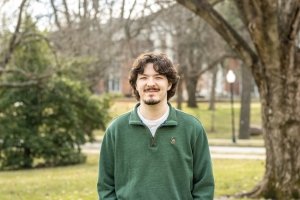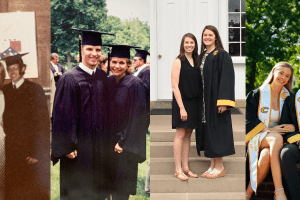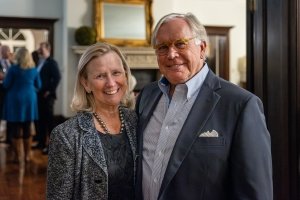Aaron Edwards '12 on the front lines of technology's fight against cancer
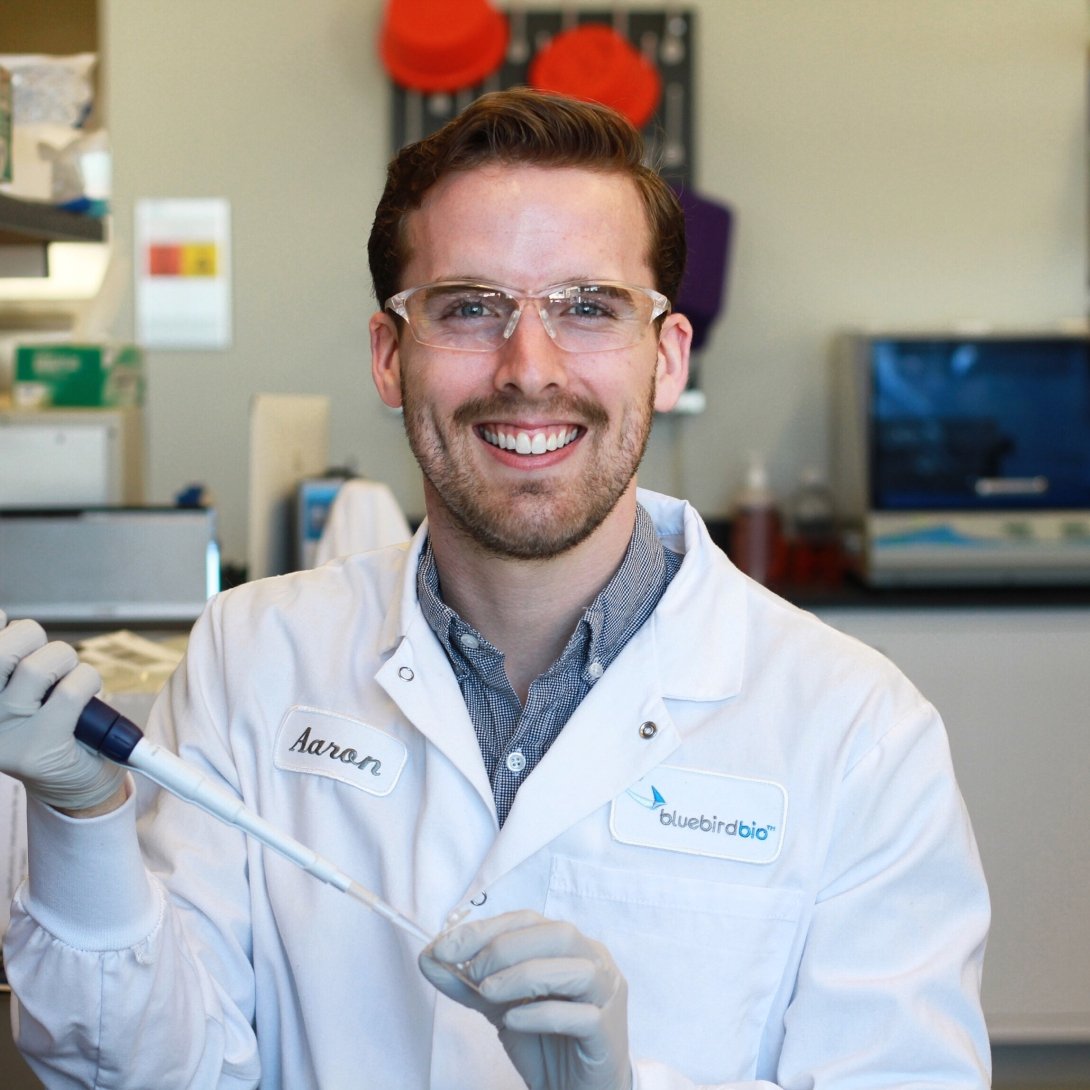
If Aaron Edwards ‘12 has one piece of advice, it’s that it is never too late to push your limits.
In the last 12 months, the newly minted CEO and Henderson native has earned a dual MBA/MS in biotechnology from Harvard University, secured two prestigious fellowships, and co-founded KiraGen, a biotechnology startup harnessing gene editing and artificial intelligence in the battle against cancer.
“My journey into biotech wasn’t linear,” said Edwards. “It was shaped by frustration with the limitations of existing therapies, a desire to solve problems at scale, and a realization that science alone isn’t enough; it has to be translated into real-world impact.”
These insights, which spurred Edwards back to the classroom, were borne from 10 years working the bench as a scientist at biotechnology and pharmaceutical companies in Boston.
“It can be very easy as a scientist to not fully understand how your work fits into the broader scheme of things,” said Edwards. “I’ve always been really passionate about what is traditionally called translational science, not just learning about how things work, but how that knowledge can be applied.”
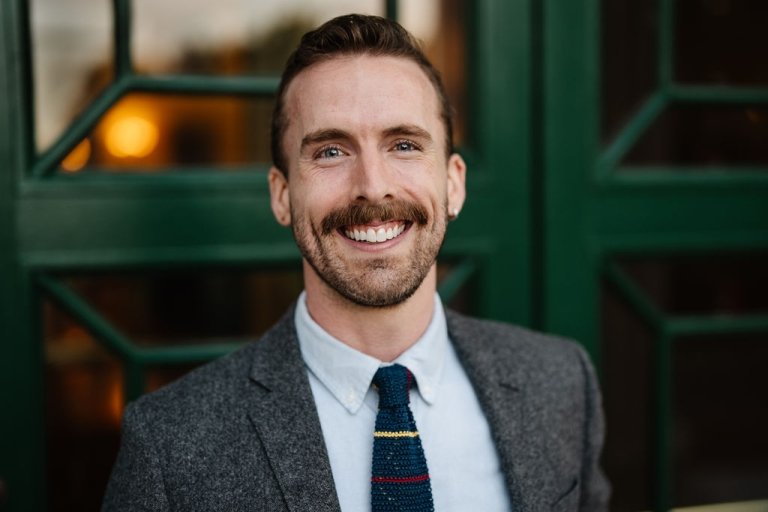
Edwards can trace this approach to seeds planted while studying biology and competing as a member of the swim and dive team at Centre College.
“Centre taught me how to think, adapt, and lead, and those lessons have shaped every step of my career,” he said. “The liberal arts education gave me intellectual dexterity — the ability to bridge science and business, to communicate complex ideas across disciplines, and to see the bigger picture.”
Edwards and KiraGen co-founder Ryan Murray are now tackling one of the greatest challenges in cancer treatment: developing a CAR-T therapy – where a patient’s immune cells are reprogrammed to fight cancer – that will be effective against solid tumors. CAR-T therapies have revolutionized the treatment of blood-based cancers, but solid tumors remain a challenge for researchers because the tumor microenvironment (TME) actively shuts down the body’s immune responses. Additionally, personalized therapies are prohibitively expensive, take time to produce and are mainly accessible through elite hospitals. This is something Edwards wants to change.
“Our platform uses machine learning to design CAR-T cells that are resistant to these suppressive forces, making them more durable and effective,” explains Edwards. “And by using healthy donor cells instead of engineering a new therapy for each patient, we are creating an off-the-shelf treatment that is ready immediately — at a fraction of the current cost.”
KiraGen’s focus is on glioblastoma, one of the most aggressive types of brain cancer with an extremely low survival rate. The startup recently reached a major milestone, achieving mouse model validation of its lead concept, and Edwards is now in talks with researchers at the University of Pennsylvania to collaborate on a clinical trial.
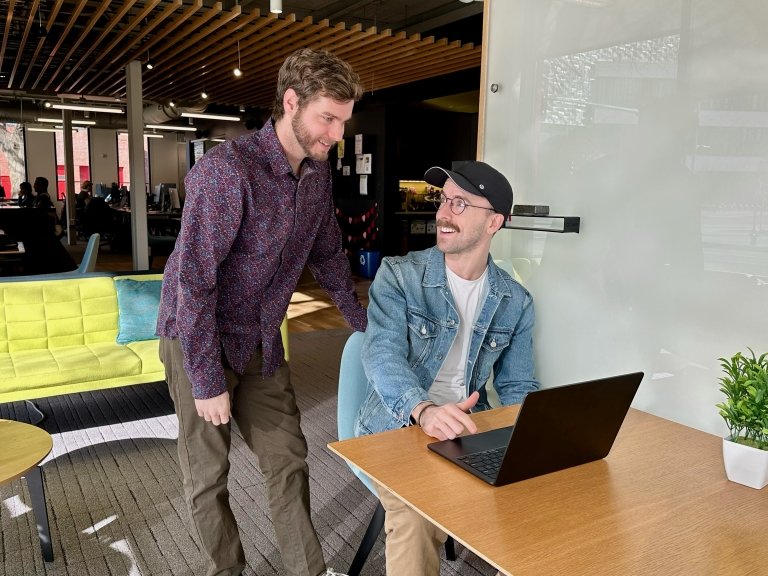
“UPenn delivered a major breakthrough in CAR-T therapy for glioblastoma,” said Edwards. “Their dual-targeting CAR-T treatment showed unprecedented tumor shrinkage — with some patients’ scans clearing almost overnight … but then, almost as quickly as the tumors disappeared, they came back.”
Seeing an opportunity, Edwards reached out to one of the investigators at UPenn, Donald O’Rourke, and the pair connected over their shared vision.
“KiraGen was already focused on engineering CAR-T cells to resist TME suppression, so the timing couldn’t have been better,” said Edwards. “We had built the exact technology needed to extend and enhance UPenn’s success.
As he looks ahead to KiraGen’s next phase, Edwards is reflecting on his time at Centre, and how it prepared him for a career as a scientist, entrepreneur and leader.
Edwards first came to Centre as part of the Governor’s Scholars program and was inspired to return as an undergraduate. He joined Phi Kappa Tau fraternity and competed on the swim team for four years, eventually serving as co-captain in his senior year.
“One of my most memorable moments was competing at the Conference Championship during my freshman year,” said Edwards. “It was an incredible experience, not just performing well individually but also racing alongside the seniors on our team in the relays. It embodied everything special about Centre athletics — the pursuit of excellence, the thrill of competition, and the pride of representing something bigger than yourself.”
Edwards credits the “Ms. Frizzles” (the dynamic science teacher from the animated TV program The Magic School Bus) in his life for helping find his current trajectory. At Centre, he found his Ms. Frizzle in biology professor Matthew Klooster.
“He brought a level of curiosity, energy and genuine enthusiasm that made science feel like an adventure.” said Edwards. “He didn’t just teach facts — he taught discovery, constantly pushing students to ask bigger questions, challenge assumptions, and embrace the unknown.”
“Aaron was an excellent student, which I was accustomed to having at Centre,” said Dr. Klooster. “However, what made him stand out was his intellectual curiosity and desire to push beyond the course material towards the margins of scientific understanding. I could tell all of those years ago that this curiosity combined with an innate creativity was going to allow Aaron to expand the horizons of human knowledge, and it’s so satisfying to see that he has used his gifts to do just that. I hope Aaron’s story can function as motivation for all Centre students to identify and embrace their gifts and use them in ways that improve the human condition for all. We need that more now than ever before.”
It was Klooster who encouraged Edwards to leave the comfort and familiarity of home and pursue graduate study in Boston.
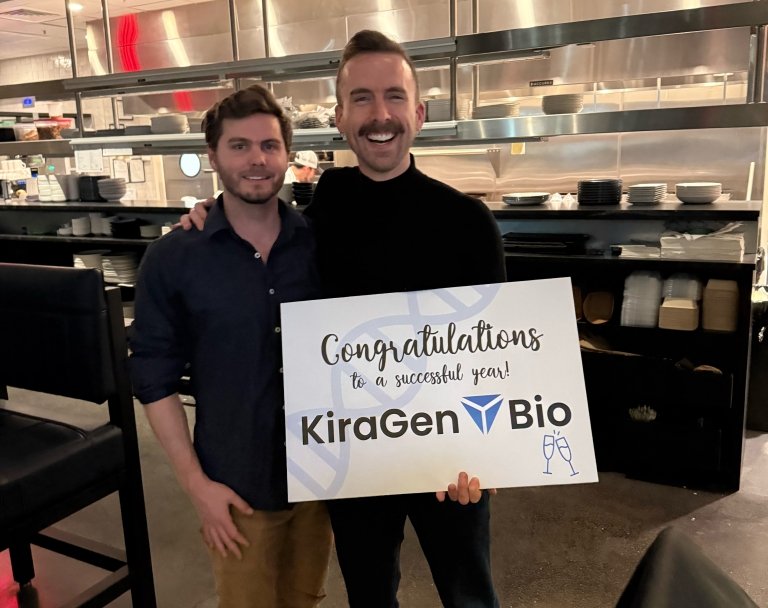
“That conversation was the spark that changed the entire trajectory of my life,” Edwards said. “Dr. Klooster’s mentorship was transformative because he saw potential in me before I fully recognized it in myself. He taught me that great mentorship isn’t about giving someone answers — it’s about asking the right questions, igniting curiosity, and making people believe they’re capable of more than they realize.”
But Edwards’ time at Centre College was not without its challenges. As a closeted gay man growing up in rural Henderson, Kentucky, he struggled with the lack of visible role models for LGBTQ+ students.
“It made it difficult to fully embrace my identity, and for a long time, I felt like I was living two separate lives,” he said. “It wasn’t that Centre itself was unwelcoming — I was surrounded by kind and supportive people — but LGBTQ+ representation was nearly nonexistent, and that absence made it difficult to imagine where I fit in.”
Edwards’ experiences at Centre have shaped his own commitment to mentorship, advocacy, and fostering inclusive spaces. As a member of Centre’s Alumni Council and Science Council, he is dedicated to building a supportive environment for all Centre students.
“As someone who once struggled to find visible role models — both as a scientist outside the traditional MD/PhD path and as an LGBTQ+ professional — I feel a deep responsibility to be that resource for others,” Edwards said. “I know what it feels like to look around and not see anyone like you, and I want to ensure that the next generation doesn’t have to feel that same isolation.”
Edwards encourages Centre students to embrace discomfort, to seek out mentors, and not to worry too much if they don’t have everything figured out yet. Most importantly, he says, students should never hesitate to ask for help.
“You are part of a lifelong community, and you are never in this alone. Whether it’s professors, alumni, or peers, there will always be people willing to support you — all you have to do is reach out,” said Edwards.
“Centre pushed me, shaped me, and prepared me for more than just a career — it helped me find my voice. And for that, I will always be grateful.”

